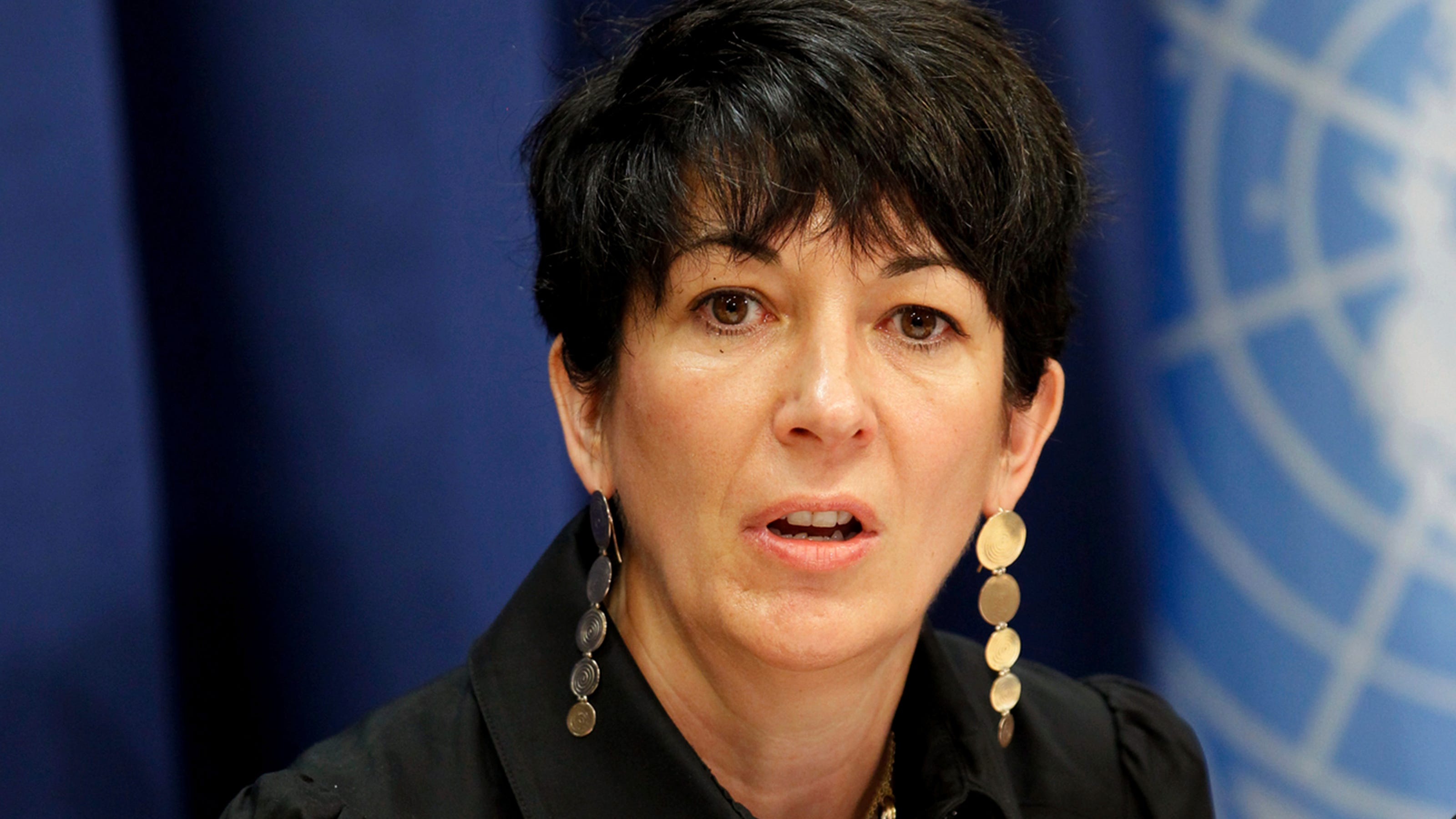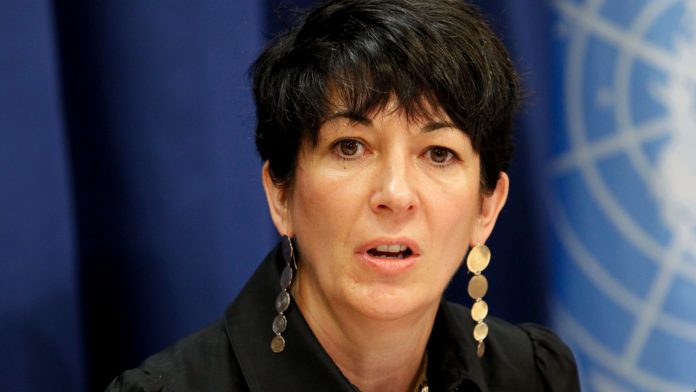
On today’s episode of the 5 Things podcast: Opening arguments begin in Ghislaine Maxwell trial
The multimillionaire socialite faces charges of helping to get underage girls for Jeffrey Epstein to abuse. Plus, education reporter Chris Quintana explains what American universities are doing to address caste discrimination, the trial of Jussie Smollett begins, reporter Nina Mandell looks at the story behind Starbucks’ red holiday cups and Cyber Monday is here.
Podcasts:True crime, in-depth interviews and more USA TODAY podcasts right here.
Hit play on the player above to hear the podcast and follow along with the transcript below. This transcript was automatically generated, and then edited for clarity in its current form. There may be some differences between the audio and the text.
Taylor Wilson:
Good morning. I’m Taylor Wilson and this is 5 Things you need to know Monday, the 29th of November, 2021. Today, the trial of Ghislaine Maxwell, plus what colleges are doing to tackle caste discrimination, and more.
Here are some of the top headlines:
- The US will begin limiting travel from a number of Southern African countries today, including South Africa. Foreign nationals from eight countries will not be allowed to enter the US except for special circumstances because of the emerging Omicron variant of COVID-19.
- Talks are set to continue in Vienna today to try and revive Iran’s 2015 nuclear deal. Iran, Russia, China, France, Germany, and Britain will meet and try to pave the way for the US to rejoin.
- And BTS gave its first in-person concert in two years over the weekend in Los Angeles. Head to USATODAY.com for highlights from the K-pop group’s return to the stage.
Opening arguments will begin today in the trial of Ghislaine Maxwell. The British socialite faces federal charges for sex trafficking. She allegedly helped her longtime companion, Jeffrey Epstein recruit, groom and exploit girls as young as 14 for sexual abuse. The alleged incidents happened from 1994 to 2004 at places ranging from a New York City residence to Palm Beach, Florida, and a home in London. Vetting for the jury took place earlier this month as the Associated Press’s Larry Neumeister explains.
Larry Neumeister:
As the prospective jurors were brought in one by one into a courtroom, they were questioned with Ghislaine Maxwell sitting there with her lawyers. So she can actually see what these people are like, see how they answer the various questions and help her lawyers decide which ones they would like to be choosing her fate when verdict probably comes in sometime in mid-January or so. The individual perspective jurors were being asked questions about things like whether they’ve had sexual attacks in their history or been sexually harassed, and whether if they were, they can still be fair and impartial in deciding the fate of Ghislaine Maxwell. They were also asked questions about what if someone’s really wealthy, can they still be fair toward that person? Because during pretrial developments, as Ghislaine Maxwell’s lawyers were trying to get her freed on bail, they revealed that she’s worth about $22.5 million. So it probably will come clear during the trial that she was of some wealth and influence. And the judge wants to make sure that these prospective jurors can be fair and impartial despite the wealth that’s involved.
Taylor Wilson:
The question for the jury will be whether Maxwell found underage girls for Epstein, knowing he would abuse them. The trial is expected to run through January and Maxwell has denied all charges.
American universities are beginning to address caste discrimination. Education reporter Chris Quintana tells us that one college sees the move as a chance to educate.
Chris Quintana:
Caste discrimination stems from this hierarchical system related to Hinduism and associated closely with India, but has spread across South Asian countries. And there’s sort of a hierarchical distinction based on where people are born. And so some folks may be higher at the top of the caste and have different jobs than folks who are lower on it, and the folks at the very bottom of that are dalits and they’ve often been relegated to hard manual labor, cleaning bathrooms, disposing of dead animals. Caste discrimination was banned in India, but a lot of dalits still say that they’re still feeling the effects of that caste system. It just doesn’t go away overnight. And so they still feel it in encounters with folks who are in a higher caste. And so a bunch of South Asian students now are pushing their universities to recognize this form of discrimination and to help protect them against it.
I just wanted to say, the universities that we’re seeing this at right now, two of them Brandeis University and Colby College are both private universities. Colby’s in Maine, Brandeis is in Massachusetts. And UC Davis is in California as well. So the fact that there’s a public institution and that’s being UC Davis kind of adopting this shows that this is gaining traction and something we may not see a lot of it right now, but there tends to be a multiplier effect with colleges. One or two starts doing it and then you kind of start seeing it more broadly. So I wouldn’t be surprised if we saw more of this in the future.
Taylor Wilson:
You can read the full story in today’s episode description.
The trial of Jussie Smollett begins today. In January 2019, the black and openly gay actor told Chicago police that he was the victim of a hate crime. But nearly three years later, he’ll face trial on charges that he made the whole thing up. He’s charged with staging the attack to advance his career and get a higher salary. And police say he hired two brothers from Nigeria to pretend to attack him for $3,500. Key witnesses will include the brothers themselves, Abimbola and Olabinjo Osundairo. Jury selection begins today, and Smollett has pleaded not guilty.
The holiday season is now in full swing and with it, those red Starbucks cups. But how did the coffee giant create what’s now a tradition? Reporter Nina Mandell explains ahead of next year’s 25th anniversary.
Nina Mandell:
We went into this story with the question of how did it become such a popular thing and how did Starbucks make reusable cups a holiday tradition. And what we really found from the experts was it was something that they tried once and then it sort of worked and so they just kept doing it and kept doing it and kept doing it. So I don’t know the origin story of what Starbucks’ executive said, “This is what we’re going to do,” but the general consensus was they just kept doing it and it grew in popularity that way.
So next year is the 25th anniversary of the Starbucks cups, which I think makes me feel very old. So I’m not sure when it became … I don’t know what defines making it a thing. I think we can all agree it’s a thing now. Back in 2015, I think everyone remembers there was a lot of controversy around the Starbucks cups. I think to me, that’s kind of the mark of, it was definitely a thing then because people cared enough to make it a controversy.
One of the things, one of the experts I spoke to told me was this year really seems like Starbucks hit all the right notes. Obviously there’s a lot more going on in the world than in past times, so I think we have a lot more to worry about than Starbucks cups. But yeah, all smooth sailing. I think the only controversy I saw, and I think this probably happens for every brand every year, was a lot of people declared that Starbucks’ holiday season had come too early.
One of the fun things that I talked with a lot of experts about was how people seemed really excited this year because it was a return to just a Christmas tradition or a holiday tradition that they really loved. And so there’s a lot of excitement on the internet about it. And I think it’s just one of those things that people are like, “Oh, hey, this is a thing that I would’ve done in before times that I can still do.” So I thought that was pretty neat.
Taylor Wilson:
For more, search Starbucks on USATODAY.com.
Cyber Monday is here. The marketing holiday began in 2005 as e-commerce was taking off, and today it continues to be a massive promotional time for online retail giants to try and get you to buy some holiday gifts. There are also some pretty good deals up for grabs. They include new Apple AirPods Pro for just 170 bucks instead of their usual 250, or Nintendo Switch games for 40 instead of 60, plus lots and lots of TVs. Our team at Reviewed has you covered with an extensive guide on what, when and where to shop. Check it out at Reviewed.com.
And you can find 5 Things wherever you’re listening right now, including Apple Podcasts, Spotify, and your favorite smart speaker device. Thanks to PJ Elliott for his great work on the show, and I’m back tomorrow with more of 5 Things from USA TODAY.








